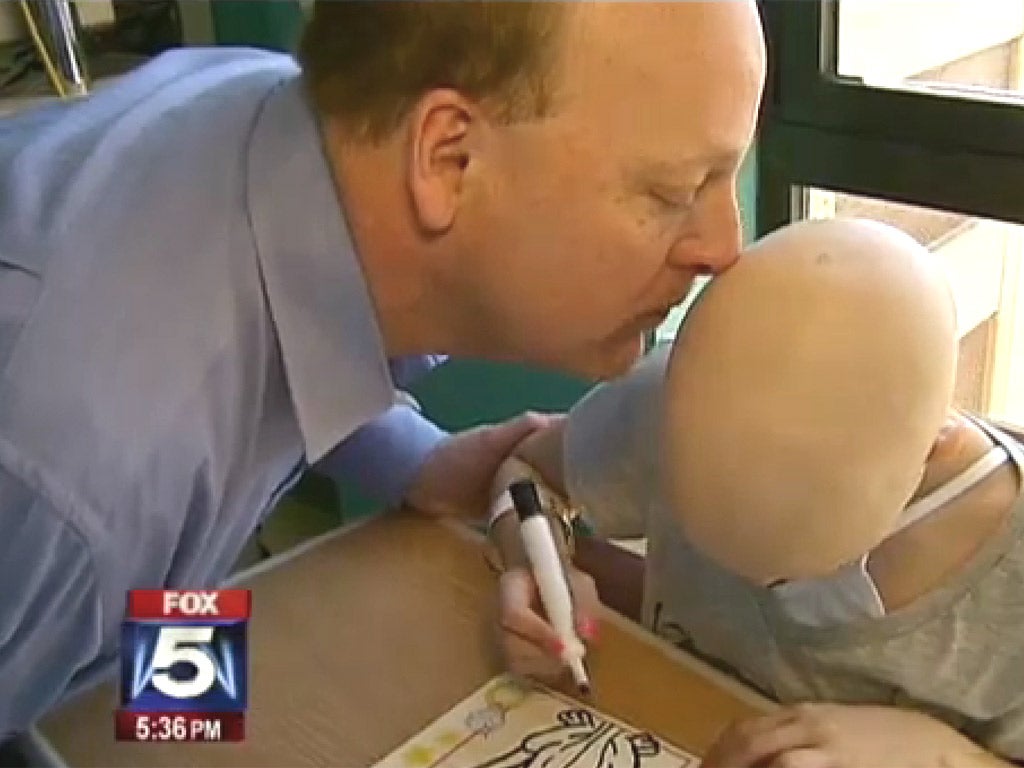American couple who beat the ban: '99.8 per cent of these kids would have a better life here than Russia'

Measured by geography, history and culture they are the opposite ends of the earth: Birobidzhan, capital of that strange entity that is the Jewish autonomous oblast of Russia, close to the border with Chinese Manchuria – and the tree-shaded, well-groomed Virginia township of McLean. But now they are linked, in the persons of Alesia and Steven Allen. Aged 10 and almost nine respectively, they were once residents at an orphanage in the former. Now they are recently minted Americans, the adopted children of Larry and Helen Allen, residents of this affluent close-in suburb of Washington DC.
The young Allens are just two of the 748 Russian children adopted by Americans in 2012, and an even smaller statistical drop among the 60,000 who have come to the US since the end of the Soviet Union. After Moscow’s recent ban they may be among the last for a while.
Even before that drastic step, though, the process was becoming more complicated. My wife and I adopted our son, then aged three, from the Crimea (part of Ukraine but ethnically predominantly Russian) in 1993. The entire process, from a first approach to an agency here which specialises in international adoptions, to our return to Washington with our son Stas took about eight months. It involved a single trip: first to Simferopol where we met Stas and the legal adoption took place, then on to the American consulate in Moscow for the US entry visa.
Almost two decades later the Allens of McLean decided to adopt and, like us, chose to go down the international route. They first set eyes on Alesia and Steven in the agency’s summer 2011 programme, a kind of “meet and match” in which Russian children come to the US to stay with a host family, who may become their real family.
The children were sister and brother, and had been in the orphanage in Birobidzhan for two years. Their father had committed suicide, their mother became depressive and alcoholic, abandoning them repeatedly. Alesia and Steven were placed in the orphanage.
Even before the children had left to go home, Larry and Helen made up their minds to go ahead, and by December the paperwork was done. Then the bombshell news arrived from Russia. Alesia had been diagnosed with Hodgkin’s lymphoma, a cancer of the immune system. At that point the Allens could have baled out. But, says Larry, “we never gave that a second thought, we had already made the emotional commitment. ”
Thus a new complication was added to the process: Alesia was receiving chemotherapy, and the Allens had to convince the Russians that they were capable of looking after a child with the disease. But the crisis may have been a blessing in disguise, shortening the process.
Even before the ban, most prospective parents were having to make two, if not three, visits to Russia, including a probation period – extended to 30 days at the end of 2011 – after the court had formalised an adoption. In 1993, we spent a total of $15,000 (£9,500) on the process, including fees, travel and other expenses. By 2012, an adoption from Russia was costing anything up to $50,000 (£32,000), increasingly out of reach for couples of limited means or who couldn’t take the time off from work.
However Alesia’s health meant things in her case had to move fast. Georgetown Hospital in Washington worked out a treatment programme. In March 2012 the Allens travelled to Birobidzhan to collect their new daughter and son. Two weeks later they were home. Alesia had already undergone two rounds of chemotherapy in Russia; five more awaited at Georgetown.
But at least they had beaten the ban. Larry Allen is saddened by it, but philosophical. “Laws passed on raw emotion happen everywhere, and tend to cause more problems than they purport to fix,” he says. “The impact of this one is on the lives of thousands of children, 99.8 per cent of whom would have a better life here than in Russia. For every story the Russians can show about some American parent leaving an adopted child locked in a car, we can show five or six that involve parents like us, nursing a sick child through cancer treatment.”
Today, Alesia’s cancer is in remission. “I don’t believe we’re out of the woods yet,” says Larry, “but we’re hopeful.”
Subscribe to Independent Premium to bookmark this article
Want to bookmark your favourite articles and stories to read or reference later? Start your Independent Premium subscription today.

Join our commenting forum
Join thought-provoking conversations, follow other Independent readers and see their replies